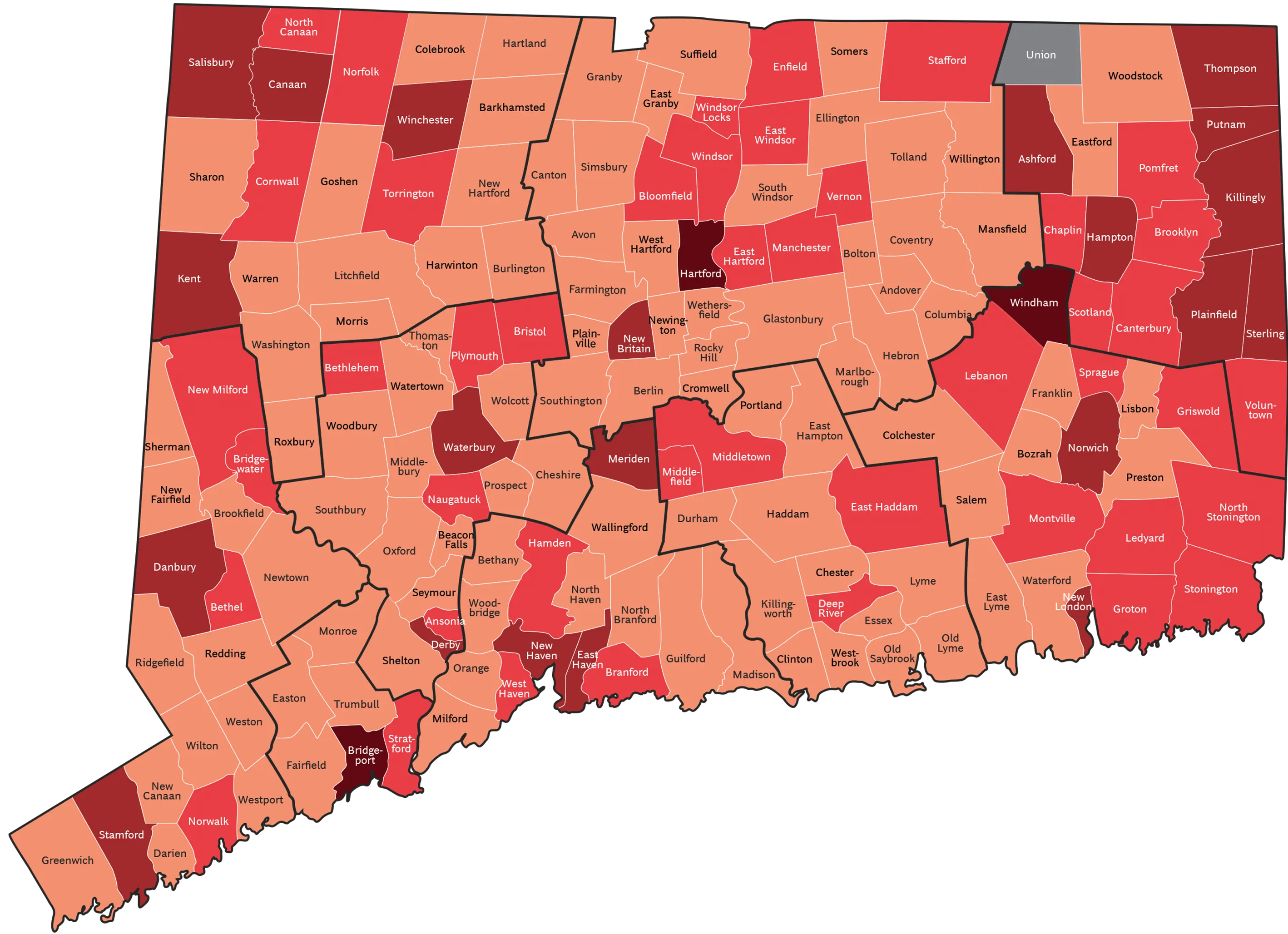Connecticut's Unspoken Crisis
The report Connecticut’s Unspoken Crisis from Dalio Education finds that 63,000 young people ages 14 to 26 are not engaged in prosocial institutions and/or not on track for gainful employment, and another 17,000 are at the greatest risk for becoming so.

A Continuum of Disconnection

-
On Track
Young adults aged 14-26 who are engaged in prosocial institutions and on-track for gainful employment
-
At Risk
High school students who are at risk of not graduating and, therefore, also at risk for eventual disconnection. Sub-populations
Off-track: Students who do not meet state credit attainment requirements
At-risk due to other factors: Students who exhibit concerning rates of absenteeism and/or behavioral issues
Severely off-track: Students who are both off-track and at risk due to other factors
-
Disconnected
Young adults aged 14-26 who are not engaged in prosocial institutions and/or not on-track for gainful employment. Sub-populations
Moderately disconnected: (1) High school diploma holders who are neither employed nor in postsecondary and (2) high school non-graduates who are employed
Severely disconnected: Young adults who are not employed, have not attained a high school diploma/equivalent and/or are incarcerated
-
4 in 5 towns in Connecticut had at least 50 young people at risk in the 2021-2022 school year
-
83% of young people who became disconnected were at risk of not graduating during high school
-
Only 31% of severely disconnected young people were employed at 22, with a median wage of $8,000
Inequitable Outcomes
Young people of almost all non-White races/ethnicities are more likely to experience disconnection.

Up to $750M Annual Fiscal Impact
By helping today’s 63,000 disconnected young people to get back on track, Connecticut would save $400 million in costs and realize up to $350 million in additional tax revenues annually.
Report Recommendations
Key recommendations from the report include:
- Expand Capacity. Increase capabilities of high-performing organizations that serve at risk and disconnected young people and significantly expand organizational capacity.
- Fund Effective Programs. Invest in scalable, evidence-based supports and services for at risk and disconnected young people:
- Invest in expanding supports and services
- Invest in high-touch case management
- Invest in tackling chronic absenteeism
- Strengthen pathways to employment
What CTOP Is Doing
CTOP invests in non-profit organizations in Connecticut working with young people who are severely off-track and disconnected. Through long-term partnerships, we provide financial and non-financial resources, supporting our grantee partners in strenghtening their organizational capacity and ability to consistently deliver positive, long-term outcomes for young people.
Coming Spring 2024: MDRC Research Report
National landscape scan of the evidence base of effectiveness for achieving meaningful outcomes with disconnected young people.
We commissioned MDRC to conduct a thorough review of all research and evaluation findings that identify the program elements and practices that are effective in helping disconnected young people across the country improve their lives, in an undertaking that will also examine and differentiate among different sub-groups of disconnected youth. We hope this project will inform the design and implementation of evidence-informed programming for our target population.
Coming Spring 2024: Community Science Research Report
Qualitative research to understand the lived experiences of young people who are disconnected.
We commissioned Community Science to undertake a robust qualitative research effort that utilizes culturally responsive inquiry through individual interviews and focus groups to illuminate the experiences of young people in their own voices. We hope this project will advance our collective understanding of the actual needs of young people - and thereby strengthen the ability of program design, advocacy, and service delivery to meet those requirements.
